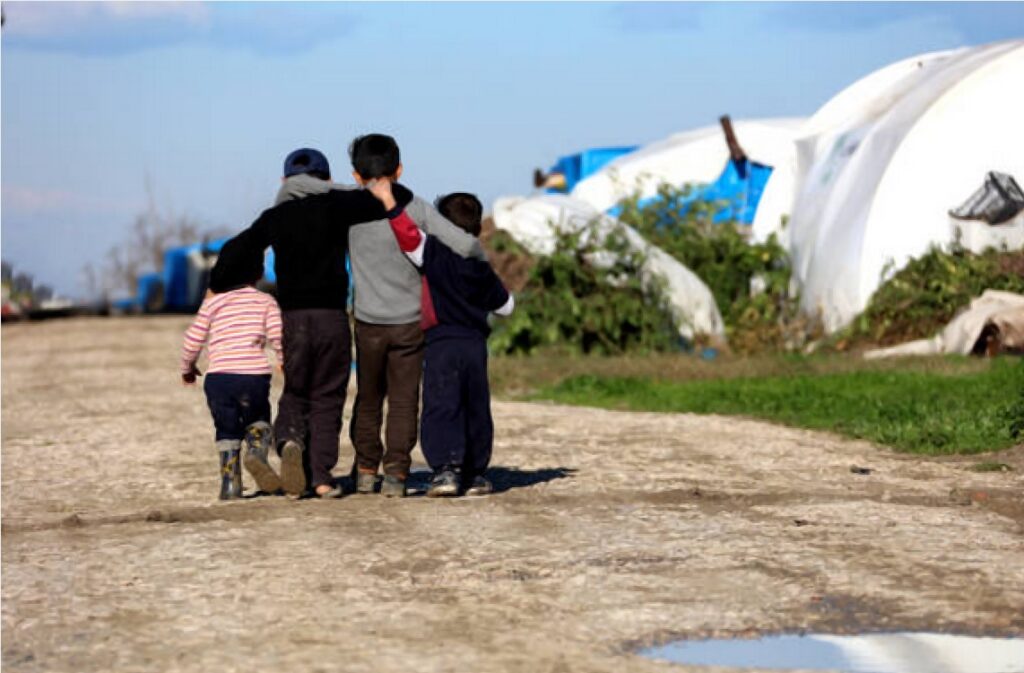- Web
- Feb 20, 2026
Asylum applications in the EU fell by 12 per cent in 2024
-

- Web Desk
- Jan 12, 2025

BRUSSELS: According to a recent report by the European Union Agency for Asylum, asylum applications in the EU fell by 12 per cent in 2024.
The trend reflects a broader shift in the political landscape across Europe, particularly in light of the refugee crisis that began in 2015.
The 27 member-states of the European Union recorded just over one million initial asylum applications. Germany, traditionally one of the leading destinations for asylum seekers, saw a whopping 30 per cent drop in applications.
The economic titan received over 235,000 requests only.
Read more: Germany makes proposals to reduce number of asylum seekers
Spain follows close behind as the second most popular destination, with 165,000 applicants. France and Italy recorded 158,000 and 154,000 applicants respectively.
The report shows that the majority of those seeking asylum in the EU came from countries experiencing severe political crisis, including Syria (15 per cent), Afghanistan at 8.7 per cent, Venezuela at 7.3 per cent and then Turkey at 5.5 per cent.
The decline in asylum applications comes in the wake of the 2015 refugee ‘crises’, when Europe saw an unprecedented influx of refugees fleeing conflict and persecution from Syria in particular.
The Middle East also saw a huge influx of refugees as Syrians escaped the brutal civil war, with Turkey, Lebanon and Jordan bearing the brunt. Lebanon took in a million, Jordan 655,000 while Turkey housed a whopping 2.5 million Syrians by end of 2016.
However, mainstream Western media failed to report this.
Read more: European countries put Syrian asylum bids on hold
The ‘crisis’ led to a range of responses from the several EU member-states, with some countries welcoming refugees while others implemented stricter border controls and immigration policies.
The surge in asylum seekers during the period also fuelled a rise of far-right political parties and populist leaders across Europe, capitalising on the growing public discontent about immigration and ‘national security’.
In the Netherlands, Geert Wilders and his Party for Freedom (PVV) gained traction by advocating for stringent immigration policies and a reduction in the number of asylum seekers.
Wilders’ rhetoric often focused on the perceived threats posed by migrants to Dutch ‘culture’ and security. This resonated with a segment of the population that felt overwhelmed by the rapid changes brought about by immigration.
In France, Marine Le Pen and her National Rally party consistently campaigned on a platform of nationalism and anti-immigration sentiment. Le Pen’s party gained significant attention in recent years, particularly among voters who are now disillusioned with traditional political parties and concerned about the ‘impact’ of immigration on French society.
The party’s success in regional and national elections reflects a growing acceptance of far-right ideologies in the political mainstream.
Austria in particular witnessed a huge shift in its political landscape, despite not taking in many refugees.
The Freedom Party of Austria (FPO) led by Herbert Kickle has emerged as a dominant force in recent elections. The FPO became the largest of five parties in the National Council, securing 57 out of 183 seats.
Read more: How Europe’s far right is changing EU asylum policy
The party’s platform focuses on strict immigration controls and a rejection of what it claims is ‘mass immigration’, appealing to young, mostly male voters.
While the refugee ‘crisis’ may have seen a decline, anti-immigrant and anti-Muslim sentiments continue to grow across the continent.




